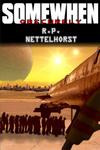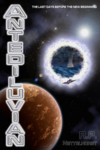One of the biggest mysteries in cosmology could be explained by a controversial theory in which the universe explodes into existence not just once, but repeatedly in endless cycles of death and rebirth.
Called the cyclic universe theory, it could potentially explain why a mysterious repulsive form of energy known as the "cosmological constant," which is accelerating the expansion of the universe, is several orders of magnitude smaller than predicted by the standard Big Bang model.
In the May 5 issue of the journal Science, Paul Steinhardt of Princeton University and Neil Turok of Cambridge University propose that the constant was once much larger, but that its value decayed with each incarnation of the universe.
The idea of a cyclic universe has been posited before, that a big crunch follows the big bang in the far future. In fact, Tipler's The Physics of Immortality required this. Until recently, the idea of a cyclic universe seemed unlikely. How quickly theories change as new information comes available.





No comments:
Post a Comment